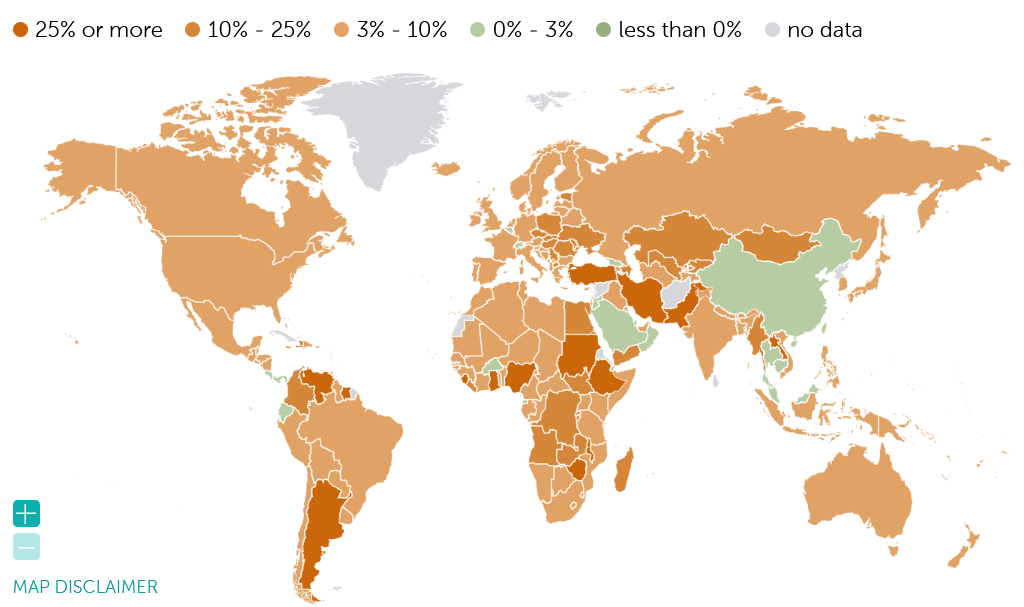27 Oct 2023 Jane Whitmoore
Bitcoin Hits An All-Time High Against Currencies In Argentina, Nigeria, And Turkey
Even if the price of Bitcoin has dropped by more than 50% from its peak of $69,000 versus the US dollar, these new all-time highs have been reached.
In comparison to some of the fiat currencies that are most prone to inflation worldwide, the price of Bitcoin (BTC) has reached fresh all-time highs.
During the course of 30 hours on October 23 and 24, the price of purchasing one Bitcoin with the Argentine peso, Nigerian naira, Turkish lira, Laotian kip, and Egyptian pound has risen to all-time highs.
It is important to remember that the outcome is a result of the continued devaluation of the currencies, which has been made worse by the recent 16% spike in the price of Bitcoin.
The peso is barely 0.85% from its all-time low (against the U.S. dollar), while the naira and lira reached their lowest values ever on October 24 and October 25.
The International Monetary Fund (IMF) reports that the Argentine oesi (122%), the Zimbabwean dollar (314%), the Sudanese pound (256%), and the Venezuelan bolivar (360%) now have the greatest annual inflation rates.
According to IMF data, the Turkish lira and Nigerian naira ranked sixth and fifteenth, respectively, with annual inflation rates of 51% and 25%.
 Source: IMF
Source: IMF
Long-time observers of the cryptocurrency space have viewed digital assets like stablecoins and Bitcoin as a hedge against rapidly rising inflation, and new data may support this theory.
According to a Sept. 12 analysis by Chainalysis, Nigeria, Turkey, and Argentina have the second, 12th, and 15th greatest rates of cryptocurrency usage globally.
The governments of these nations and the bitcoin sector haven't always agreed, though.
Following the Central Bank of Nigeria's restriction on local banks offering services to cryptocurrency exchanges in February 2021, the country is now at last admitting cryptocurrencies.
Nigeria took a step forward in December 2022 when it declared that it would enact legislation designating cryptocurrencies as "capital for investment." The country attributed this shift in position to its need to stay abreast of "global practices."
Even though Turkey is home to some of the most tech-savvy individuals, in April 2021 the country's central bank outlawed the use of cryptocurrencies to pay for products and services. In recent years, it has also been developing a central bank digital currency (CBDC) to digitalize the Turkish lira.
In the meantime, the result of Argentina's presidential election in November, which will see contender Javier Milei take on rival Sergi Massa in a decisive run-off vote on November 19, could have an impact on the country's inflation crisis.
As the nation's current minister of economics, Massa wants Argentina to "solve" its protracted inflation problem by establishing a CBDC "as soon as possible."
Additionally, he has declared his desire to prevent Argentinians from having access to US dollars, arguing that they should be "patriots" and stand up for the Argentine peso.
Milei, on the other hand, is in favor of both the adoption of the US dollar and the dissolution of Argentina's central bank.
Bitcoin btc Bitcoin price International Monetary Fund bitcoin news cryptocurrency news crypto news Crypto Price





























